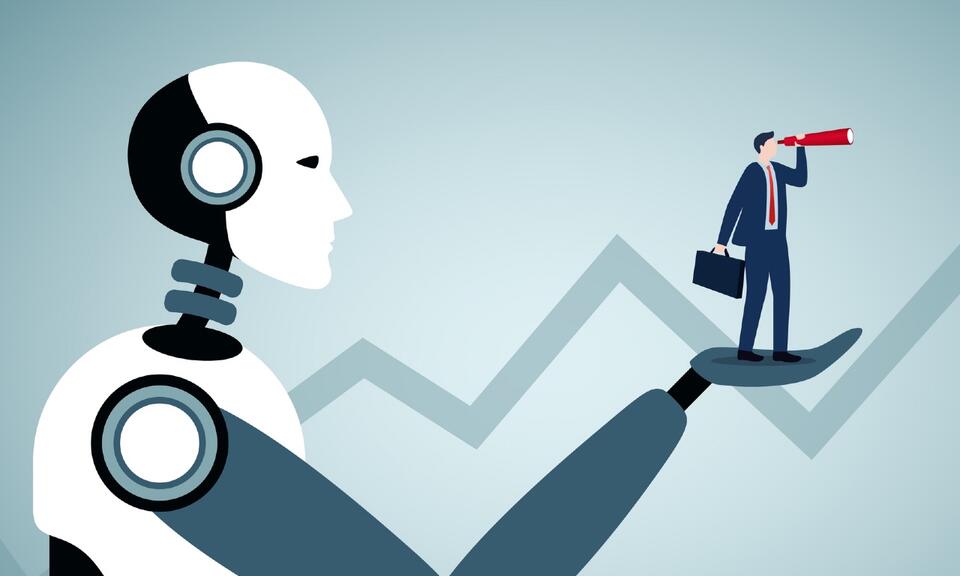The Rise of Artificial Intelligence: Transforming the Future
Artificial Intelligence (AI) has become one of the most transformative and influential technologies of the 21st century. It has permeated almost every aspect of modern life, revolutionizing industries, enhancing decision-making processes, and reshaping the way humans interact with machines. From self-driving cars to smart personal assistants, AI is not just a futuristic concept—it’s a reality shaping our present and future. In this article, we explore the concept of AI, its impact on various industries, and what lies ahead for this groundbreaking technology.
What Is Artificial Intelligence?
Artificial Intelligence (AI) refers to the development of computer systems that can perform tasks typically requiring human intelligence. These tasks include problem-solving, decision-making, language understanding, visual perception, and learning from experience. AI is categorized into two main types:
- Narrow AI: Also known as Weak AI, narrow AI is designed to perform a specific task. Examples include facial recognition software, recommendation systems (like those used by Netflix or Amazon), and virtual assistants like Siri or Alexa. This form of AI is currently the most common and is already integrated into many aspects of daily life.
- General AI: Often referred to as Strong AI or Artificial General Intelligence (AGI), general AI refers to machines that possess the ability to perform any intellectual task that a human can do. AGI remains largely theoretical at this point, but research is ongoing to bring it closer to reality.
Key Applications of AI
AI has made significant strides across a variety of sectors, transforming the way businesses and individuals approach tasks and decision-making. Here are some key applications of AI across different industries:
1. Healthcare
AI is revolutionizing healthcare by enabling early disease detection, personalized treatment, and improving operational efficiency in medical facilities. Machine learning algorithms can analyze vast amounts of patient data to identify patterns, predict disease progression, and suggest treatment plans. Some notable applications include:
- AI in diagnostics: AI tools like IBM’s Watson Health analyze medical images to detect diseases like cancer with high accuracy.
- Robotic surgery: AI-powered robots assist surgeons in performing precise surgeries, improving patient outcomes.
- Drug discovery: AI accelerates the process of drug discovery by predicting how different compounds will interact with diseases, reducing the time and cost of bringing new drugs to market.
2. Finance
The finance industry has been an early adopter of AI, using the technology for various tasks like fraud detection, algorithmic trading, and customer service. AI-powered systems can process and analyze financial data much faster than human analysts, making real-time decisions possible.
- Fraud detection: AI systems analyze transaction patterns to detect unusual activities and prevent fraudulent transactions.
- Automated trading: AI algorithms can make buy or sell decisions on the stock market within fractions of a second, optimizing profits based on real-time data.
- Customer service: Chatbots powered by AI are increasingly used by banks to assist customers with queries, reducing the need for human agents.
3. Retail
Retailers are leveraging AI to enhance customer experiences, optimize inventory management, and streamline operations. AI applications in retail include:
- Personalized shopping: AI algorithms analyze customer behavior to offer personalized product recommendations, enhancing the shopping experience.
- Inventory management: AI helps predict demand and manage inventory, ensuring products are available when customers need them while minimizing overstock.
- Chatbots and virtual assistants: Retailers use AI-powered chatbots to interact with customers, handle inquiries, and offer assistance during the purchasing process.
4. Transportation
AI is at the forefront of innovations in the transportation industry, particularly with the development of autonomous vehicles. AI systems enable self-driving cars to analyze road conditions, avoid obstacles, and make split-second decisions, making transportation safer and more efficient.
- Self-driving cars: Companies like Tesla and Waymo are using AI to develop autonomous vehicles that can navigate without human intervention.
- Traffic management: AI is being used in smart cities to monitor traffic flow and optimize traffic light systems, reducing congestion and improving the efficiency of urban transportation.
5. Entertainment
AI is also revolutionizing the entertainment industry. Streaming services like Netflix and Spotify use AI algorithms to recommend content based on user preferences, offering personalized entertainment experiences. Additionally, AI is increasingly being used in content creation, including video game design, music composition, and even writing.
- Content recommendation: AI analyzes user behavior to suggest shows, movies, and music based on individual preferences.
- Game design: AI-driven procedural generation allows developers to create dynamic, interactive environments in video games, offering more immersive experiences.
The Impact of AI on the Job Market
One of the most debated topics surrounding AI is its impact on employment. AI has the potential to automate repetitive tasks, increasing efficiency but also displacing certain jobs. For example, industries like manufacturing and customer service have already seen the introduction of AI-powered robots and chatbots that can handle tasks traditionally performed by humans.
However, AI is also creating new opportunities for employment in areas like AI development, data analysis, and machine learning engineering. The demand for professionals with skills in AI is on the rise as businesses across industries seek to integrate AI into their operations.
Reskilling and upskilling will be crucial for workers to adapt to the changing job market. Governments and organizations are increasingly focusing on training programs to help workers transition into AI-related fields, ensuring that the workforce is prepared for the AI-driven future.
Ethical Considerations in AI
As AI continues to evolve, there are growing concerns about its ethical implications. These concerns include:
- Bias in AI algorithms: AI systems learn from the data they are fed, and if that data is biased, the AI can perpetuate and even amplify those biases. For example, facial recognition software has been shown to have higher error rates when identifying individuals from minority groups, raising concerns about fairness and discrimination.
- Privacy concerns: AI systems often rely on vast amounts of data to function effectively. The collection and use of personal data, particularly in fields like advertising and surveillance, raise significant privacy concerns.
- Job displacement: While AI has the potential to increase productivity and create new jobs, there is a real risk of job displacement for workers in sectors vulnerable to automation. Ensuring that the transition to an AI-driven economy is fair and equitable is a major challenge for policymakers.
- Autonomy and control: As AI systems become more advanced, questions about the control and autonomy of these systems come to the forefront. The idea of AI surpassing human intelligence (a concept known as Artificial Superintelligence) raises concerns about the potential loss of human control over AI systems.
The Future of AI
The future of AI is full of possibilities. As research in the field continues to advance, we can expect AI to become even more integrated into everyday life, enhancing industries and creating new opportunities for innovation. Some of the most promising areas for the future of AI include:
- Artificial General Intelligence (AGI): Moving from narrow AI to AGI, where machines can perform any intellectual task a human can do, remains one of the biggest challenges and ambitions of AI research.
- AI in healthcare: Advances in AI will likely lead to even more personalized and efficient healthcare, improving diagnostic accuracy and accelerating drug development.
- Human-AI collaboration: Rather than replacing humans, AI has the potential to augment human capabilities, leading to more efficient and innovative problem-solving across industries.
- Ethical AI: As AI becomes more powerful, ensuring that it is developed and used ethically will be crucial. This includes creating regulations and frameworks to address issues like bias, privacy, and transparency.
Conclusion
AI is no longer just a futuristic concept—it is already reshaping industries, transforming how we live and work, and opening new horizons for innovation. From healthcare to finance, transportation, and entertainment, AI’s impact is far-reaching, and its potential is immense. As we continue to develop and refine this technology, it’s essential to address the ethical challenges and ensure that AI benefits society as a whole. The future of AI is exciting, and as it evolves, it will continue to be one of the most transformative forces of our time.


